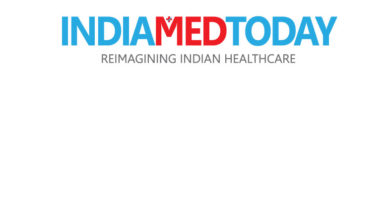74th Regional Committee Session of WHO South-East Asia to be hosted in Nepal

Health ministers from WHO South-East Asia Region to discuss pandemic, rebuilding essential health services for UHC
The 74th Regional Committee Session of WHO South-East Asia, the annual governing body meeting of WHO in the Region, is being hosted by Nepal from September 6 to 10.
The meeting will be attended by WHO Director-General Dr Tedros Adhanom Ghebreyesus, Regional Director Dr Poonam Khetrapal Singh, Health Ministers and senior health officials of Member Countries of the Region, UN Agencies, partners, donors, and civil society representatives.
Strengthening public health emergency preparedness and response, accelerating progress for prevention and control of non-communicable diseases, and ending viral hepatitis, HIV and STI are among other key issues to be discussed at the annual meeting which is being held virtually for the second consecutive year given the pandemic.
Monitoring progress on universal health coverage, revitalising school health, and the regional framework for the vaccine action plan for vaccine-preventable diseases would also be discussed.
The meeting will also take stock of the progress being made in the region on resolutions adopted at previous Regional Committee meetings. Measles and rubella elimination by 2023, improving access to essential medical products, the South-East Asia Regional Health Emergency Fund and strengthening health systems to accelerate delivery of services for non-communicable diseases at the primary health care level, would come up at the meeting.
While responding to the ongoing pandemic, countries in the region are also making efforts around the eight regional flagship priorities – to eliminate measles and rubella by 2023, address noncommunicable diseases through multisectoral policies and plans, accelerate the reduction of maternal, neonatal and under-five mortality, advance universal health coverage, reverse antimicrobial resistance, scale-up emergency risk management capacities and eliminate neglected tropical diseases and TB.
Home to one-fourth of the global population, the region continues to sustain the impressive progress made around the priority programmes. WHO South-East Asia Region eradicated polio in 2014 and eliminated maternal and neonatal tetanus in 2016. The Maldives and Sri Lanka have eliminated both measles and rubella, while Bhutan, DPR Korea and Timor-Leste have achieved measles elimination. The Maldives, Sri Lanka and Thailand have eliminated lymphatic filariasis. Nepal and Myanmar have eliminated trachoma. India is yaws-free. Sri Lanka and the Maldives have eliminated malaria. Thailand, Sri Lanka and the Maldives have eliminated mother-to-child transmission of HIV and Syphilis. Bangladesh, Bhutan, Nepal and Thailand have controlled Hepatitis B.

